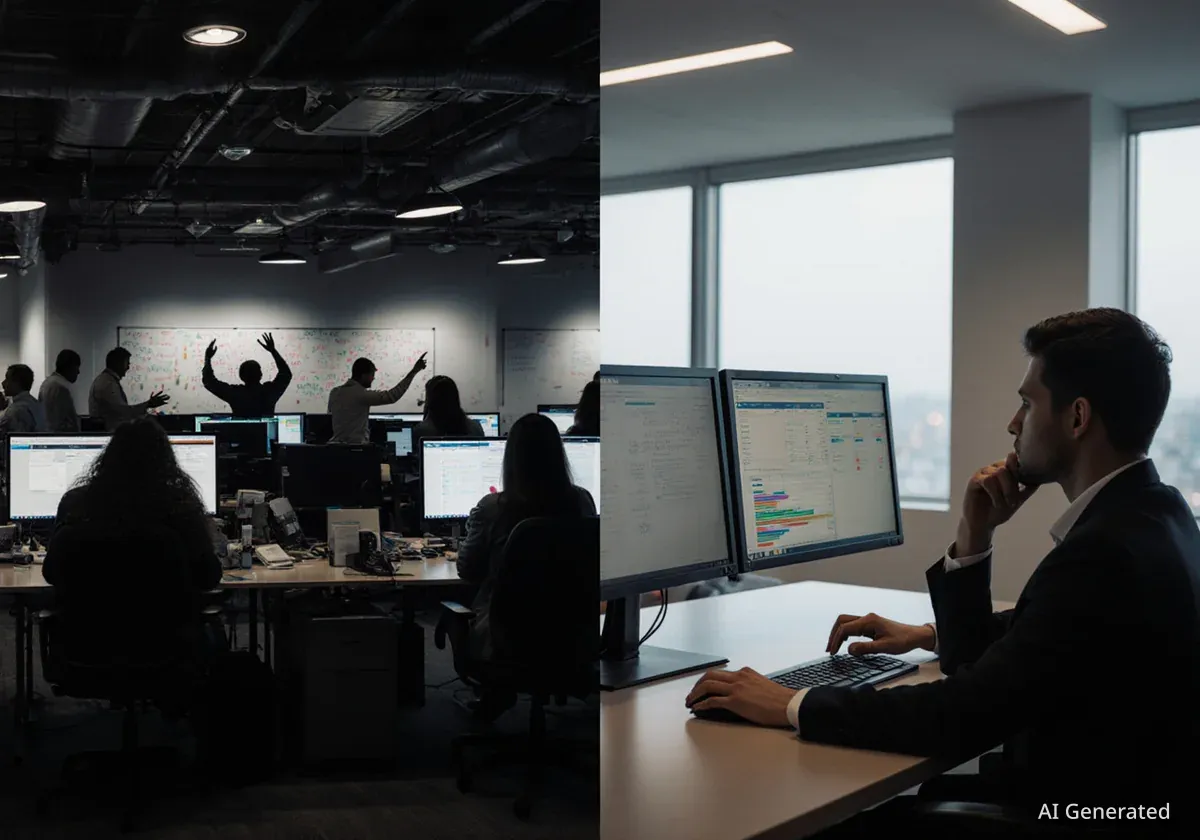Citigroup has initiated a mandatory artificial intelligence training program for 175,000 of its employees, representing a significant portion of its global workforce. The program is designed to teach staff how to write more effective prompts for the company's internal generative AI tools, aiming to boost productivity and improve work quality.
Key Takeaways
- Citigroup is training 175,000 employees in 80 locations on advanced AI prompt writing.
- The training is mandatory and aims to improve the quality of outputs from internal AI systems.
- So far this year, Citi employees have already used the company's AI tools to generate over 6.5 million prompts.
- The initiative is part of a broader trend in the financial industry to upskill employees for an AI-driven workplace.
A New Skill for a Modern Workforce
In an internal company memo, senior executives Tim Ryan and Anand Selva highlighted the importance of this new skill. Ryan, who serves as the head of technology and business enablement, and Selva, the bank's chief operating officer, compared effective AI prompting to the art of asking the right questions in a client meeting.
"Just as the right question in a client pitch can reveal clarity and create advantage, a well-crafted prompt can accelerate your work, surface insights and amplify your impact," the memo stated. This move signals a strategic shift, treating prompt engineering not just as a technical skill but as a core competency for modern banking professionals.
By the Numbers
The scale of AI adoption at Citi is already substantial. According to the company, employees have entered more than 6.5 million prompts into its built-in AI tools in the current year alone. The new training program will reach employees across 80 different locations worldwide.
Tailored Learning for All Levels
The training module is not a one-size-fits-all solution. According to Peter Fox, Citi's head of learning, the program uses an adaptive learning platform. This technology adjusts the training content based on each employee's existing knowledge of AI.
"This training is about teaching our colleagues the possibilities of great prompting versus basic prompting to generate impactful results," Fox explained. He noted that employees with advanced knowledge can complete the module in under 10 minutes, while beginners may take around 30 minutes, ensuring an efficient and personalized learning experience.
Industry-Wide Push for AI Literacy
Citigroup's initiative is part of a larger movement within the financial services industry to integrate AI into daily operations and prepare the workforce for technological change. Many of the bank's largest competitors have already implemented similar large-scale training programs.
For example, JPMorgan has included mandatory AI training, including prompt engineering, in its onboarding process for all new hires since 2024. Bank of America reported earlier this year that over 90% of its 213,000 global employees now use AI tools in their work, supported by a mix of required and voluntary training.
Keeping Pace with Competitors
- JPMorgan: Has made AI tool literacy a mandatory part of its new employee onboarding since 2024.
- Bank of America: Reports that more than 90% of its global workforce of 213,000 people use AI tools daily.
- Wells Fargo: Has trained 4,000 employees through Stanford University's Human-Centered AI program.
Wells Fargo has also seen significant engagement with its AI-powered virtual assistant, Fargo. The application handled 20 million user interactions since its launch in March 2023, and the company projects it could handle over 100 million annually as the technology matures.
Beyond the Basics: A Continuous Process
Experts caution that a single training session is not enough to achieve true digital transformation. Gary Lamach, an executive at the professional services firm ELB Learning, emphasized that successful AI implementation requires sustained investment in people.
"Too many organizations are treating AI as a box to check, launching a tool or rolling out a one-time training, and calling it transformation. That’s when implementation fails," Lamach said.
He added that the future will be shaped not by the technology itself, but by the companies that empower their employees to use it effectively. Citi appears to share this view, with Peter Fox describing the prompt training as part of a "continuous upskilling process" available to all employees.
Addressing Workplace Concerns
The rapid adoption of AI has raised concerns among employees in many white-collar industries about job security. Widespread training initiatives are seen as one way to address these fears and reframe AI as a tool for augmentation rather than replacement.
Christina Muller, a workplace mental health expert at R3 Continuum, noted the importance of this approach. "People may wonder if they will become expendable," she said. "Training is crucial to reinforce that AI is meant to be a co-pilot—not a replacement—on an already flying plane."
This perspective is critical as major corporate leaders, including the CEOs of Accenture and Walmart, have publicly stated that AI will fundamentally change jobs across their organizations. By investing heavily in reskilling, companies like Citi aim to navigate this transition by enhancing the capabilities of their existing workforce.





